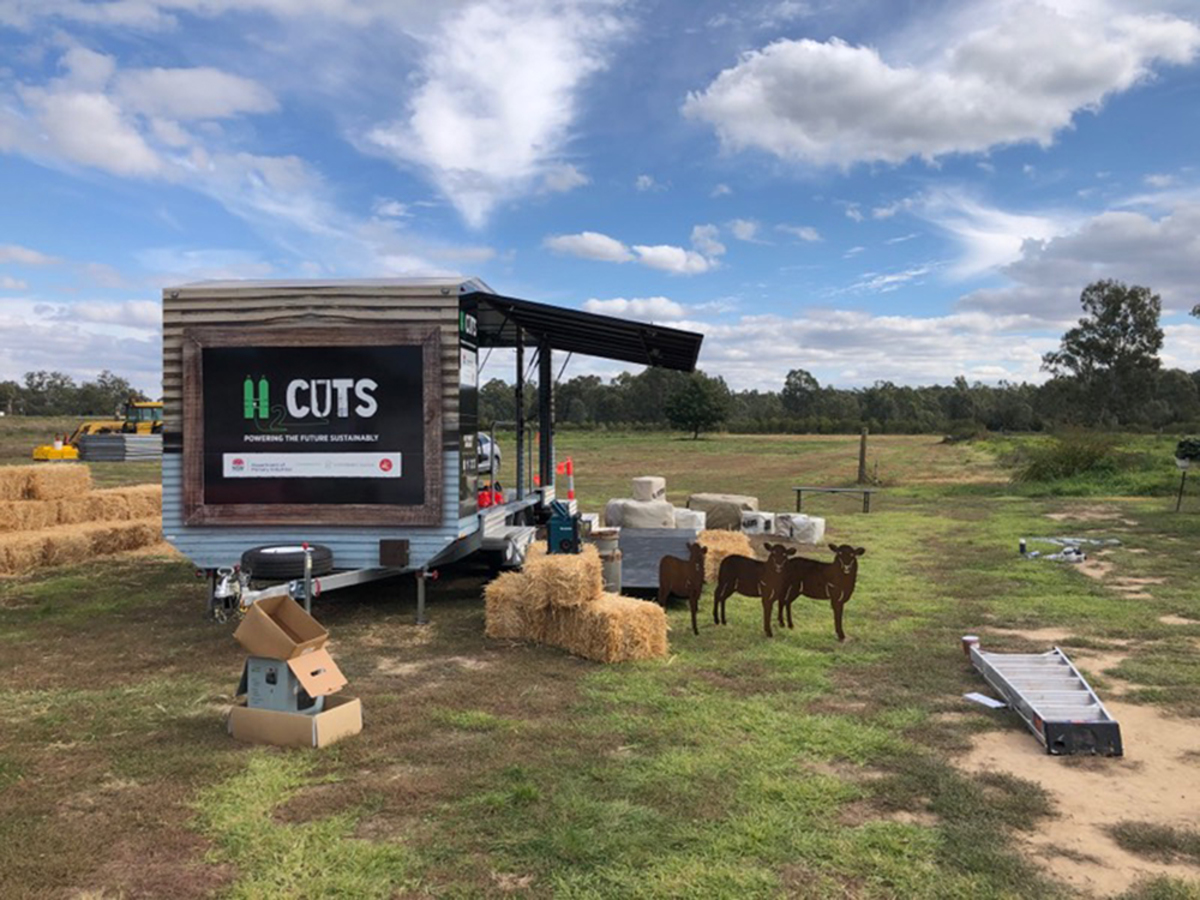Sharing stories of on-farm renewables
Lee O'Connor
05 May 2021, 6:06 AM
 This hydrogen-powered trailer will be demonstrating at the Renewables in Ag Conference in Dubbo on 18 May.
This hydrogen-powered trailer will be demonstrating at the Renewables in Ag Conference in Dubbo on 18 May.RENEWABLE energy and its various applications is evolving so quickly that it is hard to keep pace with the opportunities on offer for local agricultural businesses.
This is just one of the reasons that Narromine-based farmer and entrepreneur Karin Stark decided to bring farmers, agribusiness and the companies and innovators at the forefront of the renewables industry together under one roof at the Renewables in Ag Conference in Dubbo on Wednesday 19 May.
Ms Stark has created a national event that will be held in Dubbo this month with the ambitious aim "to create change and ensure regional Australians are part of the renewable energy transition."
"The conference will try to create more co-ordinated connections between ag and energy specialists."
The one day conference will feature speakers on topics such as including straw and stubble in bioenergy production, co-operative models to purchase biodigesters and other specialist equipment, hosting solar developments on farming land, different types of energy storage to suit agricultural applications, grid connectivity and micro-grids.
It’s the second time Ms Stark has run an event like this, providing a platform for farmers to share stories of what they have done with on-farm renewables.
The first National Renewables in Agriculture Conference and Expo in Wagga Wagga in 2019 was so successful, with 250 delegates coming from all over Australia, Karin set up a social enterprise and decided to hold the event annually, until the pandemic meant the cancellation of the 2020 Conference.
Agriculture contributes approximately 15% of Australia’s greenhouse gas emissions and all agricultural enterprises grapple with the increasing costs of power and fuel.
When Dubbo was announced as the hub for the first Renewable Energy Zone in New South Wales Ms Stark decided to bring the conference closer to home and has invited local speakers to be part of the conversation.
"Renewable energy is a practical way for farmers to significantly reduce their costs, reduce their exposure to energy price fluctuations and build business resilience," Ms Stark said.
"It’s important for farmers to be able to get together and share their stories and also their challenges and mistakes so that others can learn from them."
Dubbo sheep farmer Tom Warren is one of those who will be speaking at the conference.
"Hosting a 20 megawatt solar farm was a great opportunity for me, to supplement my agricultural income," he said.
"I was very keen from the outset that I would get the opportunity to graze my merino sheep beneath the panels, the company agreed and it’s been a win-win ever since."
Narromine cotton grower Jon Elder will also outline his investment in the largest solar diesel irrigation pump in Australia.
"Diesel was the highest cost on our farm, and was a real constraint on growth and a factor in our vulnerability to drought. The partial switch to solar powered pumping has been a game-changer for us and we expect the system to pay for itself in 5 - 6 years.”
Mr Elder says his business is also investigating hydrogen production using their excess solar.
The conference will host a demonstration of the Department of Primary Industries' 'H-cuts' trailer, to show how a hydrogen fuel-cell works as it powers a mobile barber for farmers needing a bit of a trim.
A manufacturer of electric utes will also be presenting at the Conference, discussing the general and cost advantages as battery storage prices continue to fall.
Andrew Lang, farmer, bioenergy consultant and President of the Victorian Bioenergy Network will discuss how straw, often under-valued, can be used to produce power, heat and transport fuels, plus biogas/biomethane) and potentially also for the production of biochemicals to replace industrial petrochemicals.
"Many farmers I have visited in Europe are actually energy farmers as well as producers of food and fibre," Mr Lang said.
"In Victoria, I’m helping a group of farmers near Ballarat who have been working on viable options for the use of straw as an alternative to burning, in the paddock.
"They have about 50,000 tonnes per year among the group just from baled up windrowed straw behind the headers and easily another 150,000 tonnes in the immediate district. In Denmark this would be enough to fuel a 30 Megawatt (electrical output) combined heat and power plant."
Ms Stark says that thrashing out the details of these kinds of projects is part of working towards a future where farming and large scale energy production are combined.
"The NSW Government is looking to provide enough renewable energy infrastructure to provide an alternative source as four out of five power stations in NSW are retired in the next fifteen years," Ms Stark said.
"The Conference also focusses on how farmers can ensure benefits are shared wider than just their own farms, so neighbours and local communities also gain out of the developments."